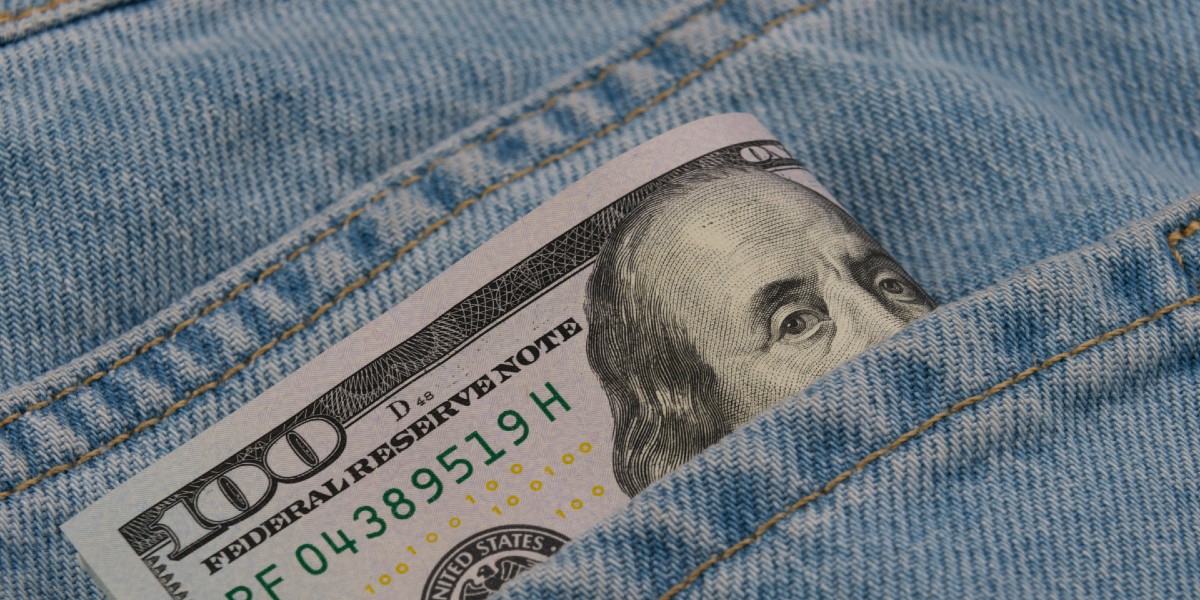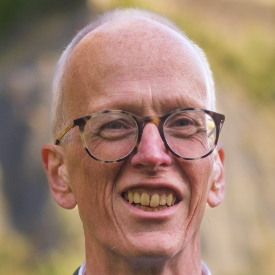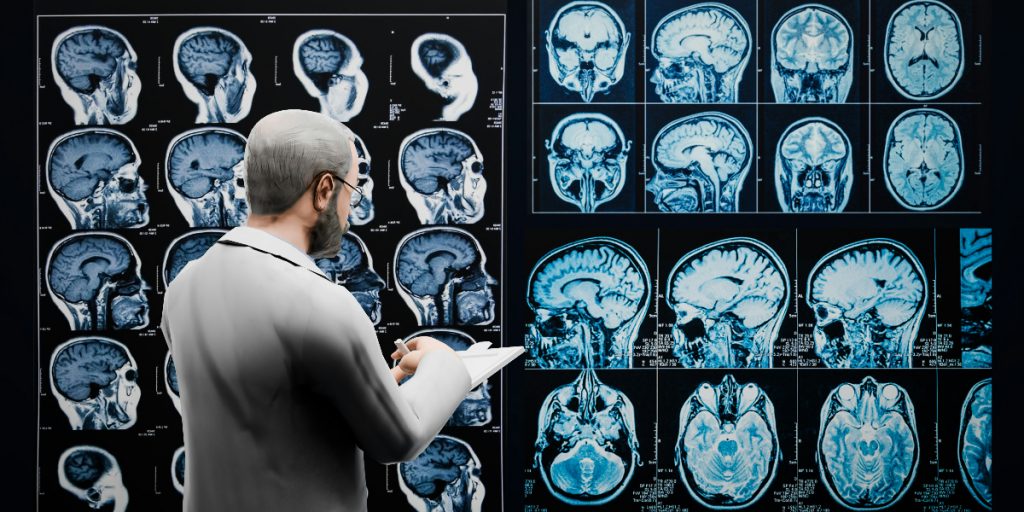Robbie Mochrie has taught economics to students, CEOs, and adult learners for over 30 years. He also writes a column on economics in The National, bringing the everyday impact of complex economics to life.
Below, Robbie shares five key insights from his new book, How to Think Like an Economist: Great Economists Who Shaped the World and What They Can Teach Us. Listen to the audio version—read by Robbie himself—in the Next Big Idea App.

1. An economist’s approach to “why.”
Why are you listening to me? Thinking like an economist means that I assume you have chosen to listen to me. No one has told you that you need to listen. You are doing this voluntarily. Also, since your time is one of your most valuable resources, you must value this opportunity to hear me talk. Of all the alternatives open to you right now, there are none which you would rather be doing.
Of course, you might be doing something else, like driving your car or making dinner, and concentrating much more on those. Or you might be listening curiously to see if there is any point in spending another 12 minutes learning about this book.
That little exercise introduces how economists consider the world filled with resources that need to be managed. Economists explore how people create, acquire, manage, and use these resources. While economists treat time and money as important resources for most people, there’s also a long tradition of economists considering people as self-managed resources.
It could be that you plan to read this book purely for pleasure. Or maybe you also hope to learn something. In economic terms, as you read, you are making an investment of time and effort. As the book helps you see the world in a slightly new way, it will cause you to change. For some readers, this book may be the first step in becoming a professional economist—and they should expect a substantial return on their investment.
2. The persuasive economist.
Here’s a definition: an economist is what you are left with after all the charisma has been extracted from an accountant. It’s a horrifying thought. But are economists really so deeply weird? Do they make the nerds on The Big Bang Theory seem quite ordinary?
Think about the activities at the heart of economics. Whether it’s buying and selling, using up time and money, or buying machinery and hiring workers, economics is all about prices and quantities. Economics is all about numbers.
That makes it perfectly natural for professional economists to be very good at using math to think about the economy, as well as gathering statistics to explore if it’s working. Anyone who has completed one course in economics any time since Paul Samuelson wrote his textbook Economics: An Introductory Analysis in the late 1940s will have encountered pages littered with diagrams, algebra, graphs, and data tables.
“Marshall worried that mathematics could easily be a barrier preventing good economic ideas from having practical effects.”
Samuelson’s predecessor, the great English economist Alfred Marshall, believed passionately that good economic thinking could be expressed in everyday language. A capable mathematician, he was skeptical about the value of mathematics in economics. In a piece of famous advice to his pupil, Arthur Bowley, he suggested that economists should use mathematics privately to develop their ideas. Then, after turning those ideas into plain, easily understood prose, they should burn the math.
Marshall worried that mathematics could easily be a barrier preventing good economic ideas from having practical effects. For many young professional economists, an important moment is the realization that they have come up with a solution to a non-existent problem. Presenting their ideas with youthful enthusiasm, they encounter the response, “So what?” Their logic might be impeccable, and they might have used statistical techniques flawlessly, but they have failed to demonstrate that their knowledge has social benefits. Thinking like an economist involves plenty of measurement and analysis. However, persuasive economics involves much more than that.
3. The responsibility of economists.
At the end of the May Day parade in Moscow, after all the nuclear missiles have passed, imagine that there is a file of men in gray suits. It’s the economists’ corps—the ultimate weapon of mass destruction. Since working out what is going wrong in the economy and how to put it right has always been an important part of thinking like an economist, why might we tell jokes like these?
There was economics long before there were economists, and through the 20th century, many important economic ideas were first developed by non-economists. Other people tend to view economists with suspicion when they close in on themselves, holding narrow, technical conversations with one another rather than being outward-looking and explaining how to understand the world and make it a better place.
The jibe is, therefore, aimed at economists who have forgotten that the economy is too important to be left just to them. We are all immersed in the economy, and everyone tries to understand it to some extent. That makes us all economists. The professionals, who are certainly not infallible, don’t get to form a priestly caste.
There is another reason, though. People want the economy to work for them. When it doesn’t, it’s not just economists who have explaining to do. 2024 is an election year. Upon recording this, people in Mexico, South Africa, and India had just voted, and the election campaign in Britain just started. In November, Americans will choose between Harris and Trump.
“We are all immersed in the economy, and everyone tries to understand it to some extent. That makes us all economists.”
In all these elections, the state of the economy is very important. Many people feel that they have been pummelled by the economy for too long. Such voters are ready to turn out the government because it has failed to make the economy work for them. To some extent, economists are collateral damage in this. Since they know all about the economy, people want them to take some responsibility when it goes wrong. But that seems a bit like blaming a police officer for the car crash they are investigating.
For 250 years, economists have held a mirror to society so that people can see what is going wrong. In The Wealth of Nations, Adam Smith explained how a capitalist society could work. He criticized how the British government ran its colonies, effectively predicting the American Declaration of Independence and the colonists’ victory in the subsequent war.
Then, in the middle of the 19th century, John Stuart Mill and Karl Marx grappled with the problems of poverty among the urban working classes. Mill argued for social reforms, especially in education. Marx predicted revolution as the inevitable consequence of the capitalist exploitation he saw everywhere.
And during the Great Depression in the 1930s, John Maynard Keynes established a new way of thinking about the economy, in which governments had an important management role. Along with many others, including Joseph Schumpeter, Milton Friedman and Paul Samuelson, these economists were persuasive writers and speakers. That added to their prestige both as key government advisers and as subtle interpreters of events.
4. Economists as philosophers.
An economist is an expert who can tell you tomorrow why the advice he gave yesterday about what to do today was wrong. There is a truth to this: Economists are better at explanation than prediction. Economics can’t be like, say, physics because it studies human behavior and relationships in all their complexity.
That’s one reason why a book about thinking like an economist includes philosophers, priests, journalists, mathematicians, political scientists, and psychologists. It was essential for the book to begin by demonstrating that in ancient Greece, economics (or household management) was initially a branch of practical ethics and politics. And that economic ideas mattered to the classical philosophers because they helped people lead fulfilling lives.
That’s why Adam Smith rebutted the widely held belief that The Wealth of Nations lay in a hoard of bullion. He demonstrated that true wealth is found in productive assets—including knowledge. As a philosopher, he believed that a good society needed everyone to understand some philosophy.
I encountered many more economists who were immersed in philosophy. I’d expected to find that in the 19th century, economics separated from philosophy quite quickly. I was wrong. John Stuart Mill’s interests spanned logic, politics, and political economy. Most economists today rely on some form of his utilitarian ethics. Karl Marx can only be understood as a philosopher who criticized Adam Smith’s system. He wanted a revolution in economics as a first step towards the socialist revolution.
“Economists are better at explanation than prediction.”
Then, I explored the writings of Alfred Marshall, whose Principles of Economics became the standard introduction to economics until the middle of the 20th century. Marshall argued that the fundamental purpose of economics was to benefit poor working men. Even as he made much of modern economics possible, he adapted Smith’s and Mill’s philosophical framework.
And as for Marshall’s great pupil, John Maynard Keynes: was he an economist or a philosopher? Marshall taught him for one term. His fellowship dissertation on the philosophical foundations of probability theory was examined by Bertrand Russell and Alfred North Whitehead. Throughout his career, he thought about the economy like a philosopher. That helped him change the way we think about the economy and develop a new type of economics that had a closer relationship with politics than Marshall’s theories.
By the time great thinkers like Paul Samuelson, John von Neumann, and Kenneth Arrow developed sound mathematical foundations for economics, it was perfectly natural that political scientists and psychologists developed ideas to challenge their approach.
Since increasing well-being for people across society is the whole purpose of economics, good economists need to understand people—not just as workers and managers or buyers and sellers, but as human beings.
5. Economists for a better world.
If all the economists were laid end to end, they would not reach a conclusion. Should we be concerned about the implications of this joke? Not at all.
When Adam Smith talked about the economy working as if an invisible hand directs it, he was saying that the economy manages itself. It doesn’t need a planner. Instead, we all pursue our own interests. Doing so (in what Smith considered a properly self-interested, rather than selfish, way) leads to the best possible economic outcomes.
Famously, the 19th-century man of letters, Thomas Carlyle, defended slavery and dismissed economics as a “dismal science.” Believing that abolition would make us poorer, Carlyle used the term while denouncing John Stuart Mill’s updating of Adam Smith’s eloquent condemnation of slavery for its immorality and economic inefficiency.
For Smith, slavery resulted from the abuse of military and political power. Greedy slave owners were using power to impose their will, extracting huge profits from their corrupt businesses in the colonies. Slavery wasn’t the work of the invisible hand but a result of the hand being bound by the powerful.
Rather than being dismal, economics is surely the messy science. As economists turn to their numbers, they consider how people engage with resources. As they try to understand what is happening around them and how it might change, they must also be, in Robert Heilbroner’s phrase, “worldly philosophers.”
They tend to be optimists, trusting people to act wisely and believing that society will progress, certainly materially and perhaps also morally. But they are also realists who know that everything can go wrong. So, they call out mistakes and think about how to build a better future. However, when dealing with people, they are cautious about making predictions, often preferring to explain events after they happen. In all this, they bicker happily, disagreeing passionately about how the economy works. Thinking like an economist means looking at the world, seeing it afresh, trying to understand it, and aiming to make it a better place.
To listen to the audio version read by author Robbie Mochrie, download the Next Big Idea App today:































